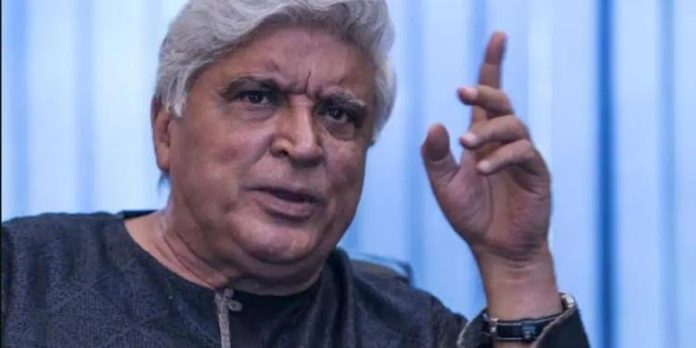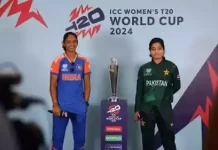Dr. Mohammad Najeeb Qasmi. siyasat.net
On May 9, 2020, Bollywood song writer, Javed Akhtar, tweeted on his Twitter account about Azaan. While anti-Muslim elements expressed happiness on it, scholars, intellectuals of the nation and Muslims of India expressed their regret on his message. Let’s have a look at his message: “In India, for almost 50 years, Azaan on the loudspeaker was Haraam. Then it became Halal and so halal that there is no end to it, but there should be an end to it. Azaan is fine, but loudspeaker does cause of discomfort for others. I hope that at least this time they will do it themselves.”
The first question to Mr. Javed Akhtar is that at present the country is suffering from Corona epidemic, the country’s great power is working to protect the masses against this disease, millions of people are unemployed and anxious to go home and the economic situation of the country is bad. What is the need to raise this issue at such a time?
The second question is that despite the spread of Corona epidemic in the country, the government allowed the re-opening of liquor stores, as a result of which the lockdown was blown up, why did you not bother to say a word? However, everyone knows that alcohol sold in India is extremely harmful to the health of the general public. Alcohol is not only injurious to the health of drinkers, but it is also harming the entire society of the country in various economic, environmental and social aspects.
The third question is, why did you mentioned Azaan only while loudspeakers are also used in places of worship and during other events of all the religions. It is against the religious freedom to allow announcements from the places of worship of other religions through loudspeakers but to stop the Azaan.
The fourth question is that the Azaan takes only two minutes, whereas noise and pollution from factories, workshops, machines, cars and trains cause thousands of times more noise, but all these things are put behind by mischievous people and only the issue of Azaan on loudspeakers is raised and recently some people raised the issue again to spread hatred among Hindus and Muslims, but they met a crushing defeat when the government and the court gave a decree on not stopping the Azaan on loudspeakers. Then what was the need for you to write more on this topic?
The fifth question is that only words of goodness and benefit are proclaimed in the Azaan. By saying “Allahu Akbar” for the first four times in the Azaan, it is acknowledged that Allah Almighty is the greatest. After this, two testimonies are given twice that Allah is the real God and Muhammad is the Messenger. Then twice the Muslims are invited to offer prayers through “Hayya Alas-Salat”, and then twice “Hayya AlaAl-Falah” it is said that the real success is in the prayers. Twice before the end of the Azaan, it is said “Allahu Akbar” and once it is said “La ilaha illa Allah” that no one is worthy of worship except Allah. In the Fajr Azaan, Muslims are invited to worship Allah early in the morning by saying, “As Salatu khairan min an-Noum” (Prayer is better than sleep). Assuming that the Azaan does not criticize any religion or any person, nor is it a political ploy, but praises the Creator of the universe, who is called Allah in Arabic, God in English, Khuda in Persian and Bhagwan in Hindi. If Muslims are called to prayer by testifying that He is the real God and the Muhammad is His Messenger, then why is it necessary to make the Azaan over loudspeakers a big problem?
The sixth question is that what you have said in your tweet that it was Haraam to call to prayer on loudspeakers in India for almost fifty years, then became halal. Indian Muslims would like to know what were the fifty years in which it was forbidden to call to prayer on loudspeakers? Is it haraam not to use anything? Although the loudspeaker was invented in 1924, its use was initially very limited, and people did not need it. In the beginning it was not used in mosques and also in any other religious place of worship, as the common people did not have any knowledge on how it works. For this reason, at first some scholars said that it should be avoided, but no major educational institution has issued a fatwa forbidding the use of loudspeakers. As research on loudspeakers began to emerge and it began to be used, mosques, along with other places of worship, gradually started using them. The purpose of the Azaan is to inform Muslims that the time of prayer has approached. In the past, the Azaan could be heard from afar due to the absence of noises from cars, factories and machines. As people around the world began to be confined to the current-style closed residential homes and offices, and the noise in the world increased, so did the use of loudspeakers in mosques. Now the situation is such that giving the call to prayer without a loudspeaker loses the purpose of the Azaan because in most areas the Azaan without a loudspeaker cannot be heard due to noise. For this reason, the Azaan is pronounced through a loudspeaker. In Darul Uloom Deoband, the great religious seminary of Asia, the Azaan is being pronounced on the loudspeaker even before the birth of Mr. Javed Akhtar. Certainly, there has been a disagreement over the use of loudspeakers for prayers, but the disagreement over the Azaan on loudspeakers was only in the early stages. However, the use of loudspeakers for the Azaan has not been considered necessary until now. Even today, in many mosques, the Azaan is not pronounced over the loudspeaker, but this does not mean that the Ulama or the people of that area consider it haraam to pronounce Azaan over the loudspeaker. This is similar to the situation when the Britishers started tea in India, people, even from backward classes, would run away from tea. Even a hungry person would not be ready to drink tea for free. This is not because their pandits or priests or scholars stopped drinking tea or that it was forbidden, but people did not know about tea. As research on tea came to light, people started using it, now the situation is that there is no choice without tea, but even today you will find people who do not drink tea but that doesn’t mean that they consider it to be unlawful or haraam.
After asking these six questions to Mr. Javed Akhtar, I now address the general Muslims that since the establishment of Muslim society in Madinah in the first Hijri, the call to prayer has been declared an Islamic motto, but the loudspeaker for the Azaan is not necessary. The purpose of the call to prayer is fulfilled through loudspeakers, but we live in a secular country like India, where people of different religions live, so we should also take care of our compatriots. Therefore, do not raise the volume of the loudspeaker for the Azaan because the religion of Islam is moderation and not extremism.
(www.siyasat.net is Ahmedabad,Gujarat, India based website)

































Loudspeakers is a non issue . The current India is led by BJP will criticize any thing to do with Islam and Muslims.
If the loudspeakers are bothersome then even if is stopped wouldn’t
and shouldn’t not be a problem for Muslims.
Given the circumstances of narrow roads and heavy traffic in India all the religious processions should also be stopped for the convenience of the public.
All the public events should be allowed only in stadiums and halls not on the roads.
I would like to draw Jaweed Sahab’s attention to the above issue other than loudspeakers.
Thank you
Ans Ahmed
Comments are closed.